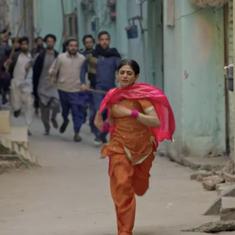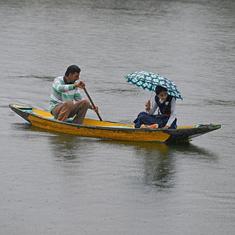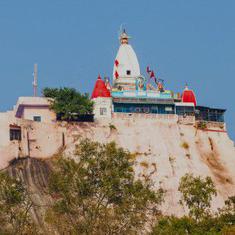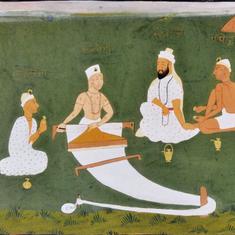Trump bans travellers from 12 countries citing national security
The restrictions that will take effect on Monday were introduced to ‘protect Americans from dangerous foreign actors’, claimed Washington.

Citing national security concerns, President Donald Trump on Wednesday announced that citizens from 12 countries would be banned from entering the United States and those from seven other countries would face restrictions starting Monday.
The countries whose citizens have been banned are Afghanistan, Myanmar, Chad, the Republic of Congo, Equatorial Guinea, Eritrea, Haiti, Iran, Libya, Somalia, Sudan and Yemen.
Heightened restrictions will be imposed on travellers from Burundi, Cuba, Laos, Sierra Leone, Togo, Turkmenistan and Venezuela.
The directive is part of an immigration crackdown launched by Trump in his second term. It includes the deportation of hundreds of Venezuelans to El Salvador over suspected gang ties, as well as moves to block certain foreign students from enrolling in American educational institutes and deport others.
In a video posted on social media on Thursday, Trump said that the “strength of the restrictions we’re applying depends on the severity of the threat posed”. He clarified that the list can be revised if there were perceived improvements while also highlighting that more countries could be added if new threats emerge.
Trump has tied the new travel restrictions to the terror attack on Sunday in Boulder, Colorado, where the suspect has been identified by officials as an Egyptian national who had allegedly overstayed his visa.
Egypt, however, is not on Trump’s restricted list.
The White House said some of the countries on the list had “deficient” screening and vetting processes or “have also taken advantage of the United States in their exploitation of our visa system and their historic failure to accept back their removable nationals”.
The US president said: “We don’t want them.”
“In my first term, my powerful travel restrictions were one of our most successful policies and they were a key part of preventing major terror attacks on American soil,” he said on social media.
Trump had signed a similar order in 2017, during his first term in office, that went through several iterations before it was finally upheld by the Supreme Court in 2018, Reuters reported.
Back then critics had called the ban a “Muslim ban” as the seven countries on the first list were Muslim majority. It was then revised to add two non-Muslim majority countries, North Korea and Venezuela, BBC reported.
However, the ban was repealed in 2021 by Joe Biden, the president at the time, deeming it a “stain on our national conscience”.
On Thursday, Trump claimed that the countries were decided based on an analysis by the Department of Homeland Security that considered factors such as “large-scale presence of terrorists, failure to cooperate on visa security, inability to verify travellers’ identities, inadequate record keeping of criminal histories and persistently high rates of illegal visa overstays and other things”.
“President Trump is fulfilling his promise to protect Americans from dangerous foreign actors that want to come to our country and cause us harm,” White House Spokeswoman Abigail Jackson told CBS News.
The proclamation by the White House clarified that exceptions have been made for certain travellers from the list of countries including athletes travelling for major sporting events, such as the 2026 football world cup or the 2028 Summer Olympics, Afghan nationals holding Special Immigrant Visas and any “lawful permanent resident” of the US.
Besides, holders of “immigrant visas for ethnic and religious minorities facing persecution in Iran” and persons who have dual citizenship in countries not included in the travel ban will also be exempted.
Further, the US secretary of state may grant exemptions to persons on a “case-by-case” basis, if “the individual would serve a United States national interest”.









